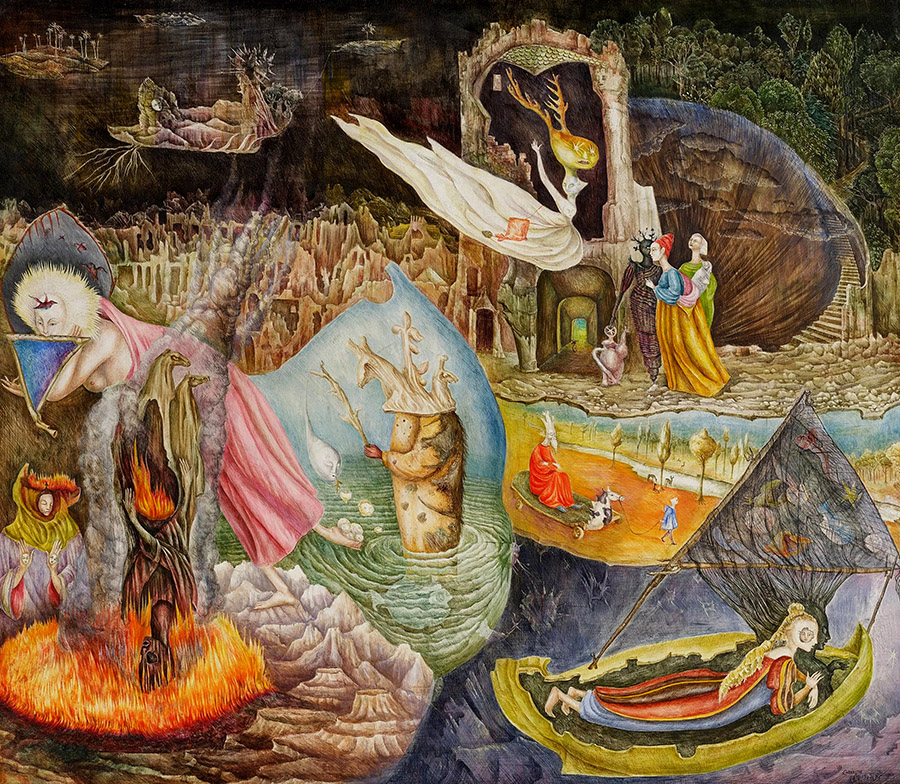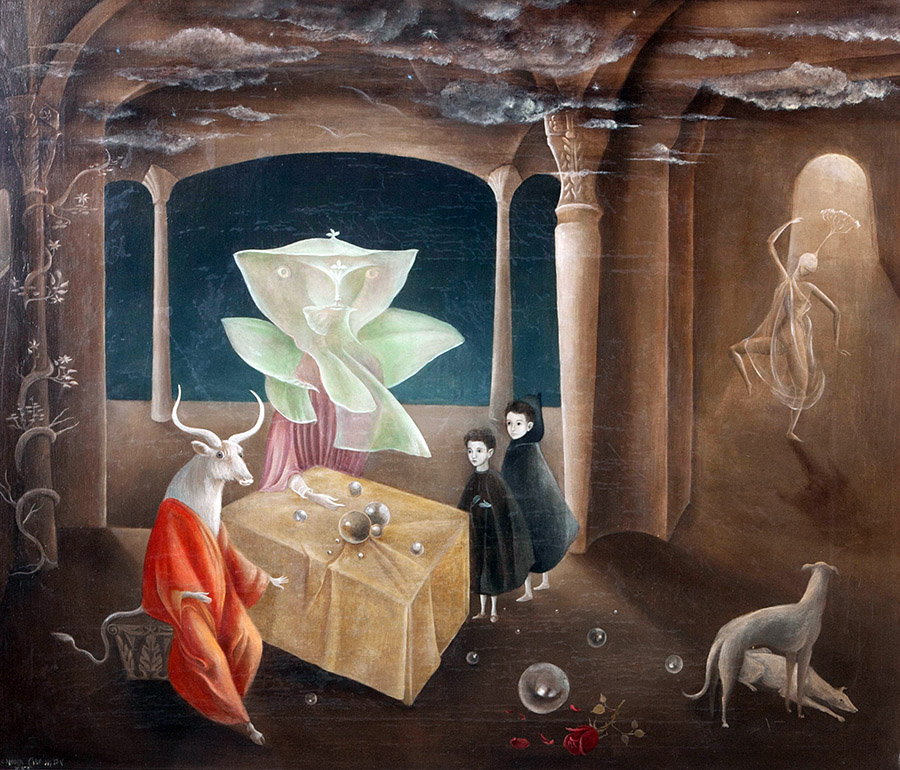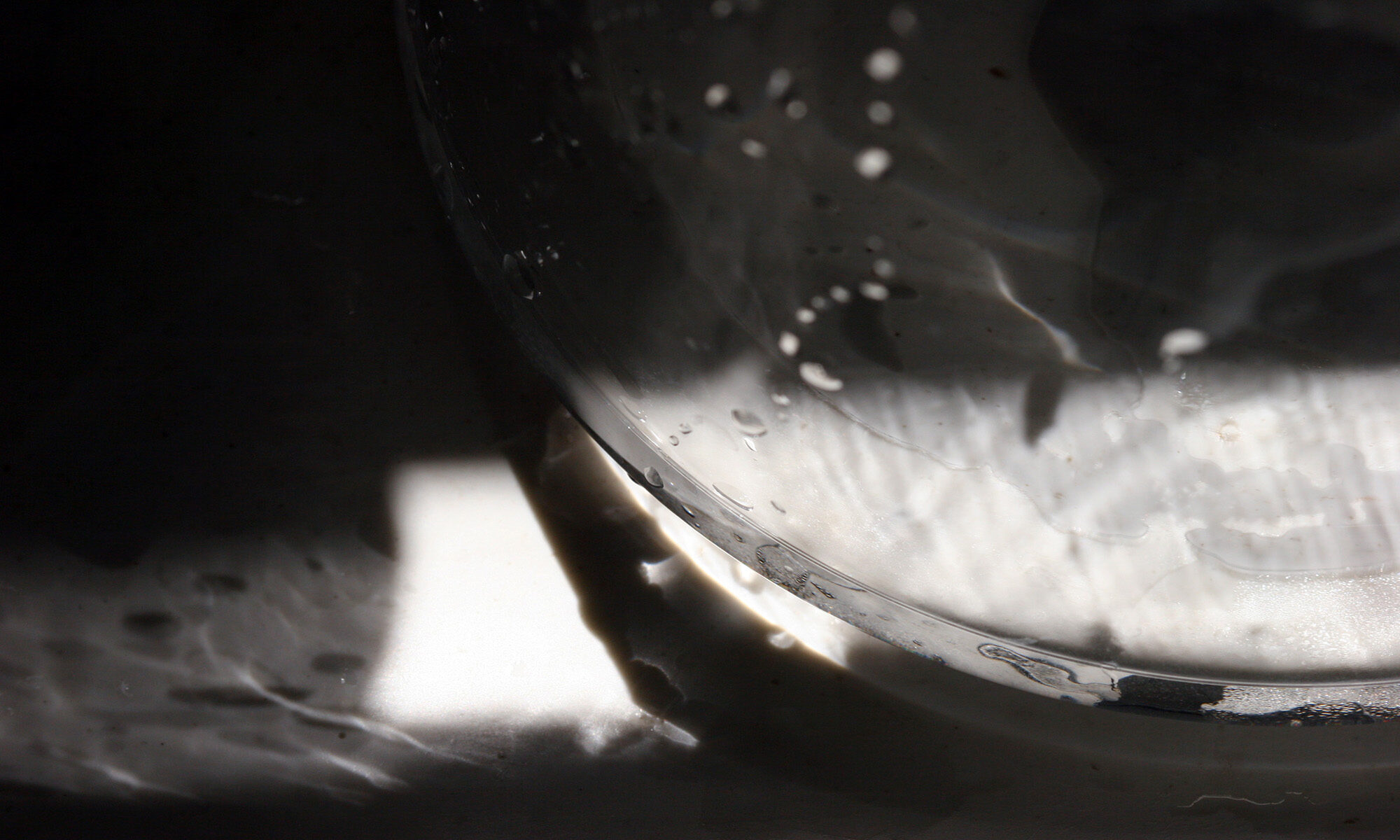Walking down a narrow street one evening, I stole a melon. The fruit seller, who was lurking behind his fruit, caught me by the arm.

Miss, I’ve been waiting for a chance like this for forty years. For forty years I’ve hidden behind this pile of oranges in the hope that somebody might pinch some fruit. And the reason for that is this: I want to talk, I want to tell my story. If you don’t listen, I’ll hand you over to the police.
I’m listening, I told him.
He took me by the arm and dragged me into the depths of his shop amongst the fruit and vegetables. We went through a door at the back and reached a room where there was a bed in which lay a woman, motionless and probably dead. It seemed to me that she must have been there a long time, for the bed was overgrown with grass.
I water her every day, the greengrocer said thoughtfully. For forty years I’ve been quite unable to tell whether she is alive or dead. She hasn’t moved or spoken or eaten during that time. But, and this is the strange thing, she remains warm. If you don’t believe me, look.
Whereupon he lifted a corner of the bed cover and I saw a large number of eggs and some newly hatched chicks.
You see, he said. That’s where I hatch my eggs. I sell fresh eggs too.
We sat down on opposite sides of the bed, and the greengrocer began to tell his tale.
I love her so much, believe me, I’ve always loved her. She was so sweet. She had nimble little white feet. Would you like to see them?
No, I replied.
Anyway, he continued with a deep sigh, she was so beautiful! I had fair hair. But she, she had magnificent black hair. We both of us have white hair now. Her father was an extraordinary man. He had a big house in the country. He was a collector of lamb cutlets. The way we met was this. I have this special little gift. It’s that I can dehydrate meat just by looking at it. Mr. Pushfoot (that was his name) heard about me. He asked me to come to his house to dehydrate his cutlets, so that they shouldn’t rot. Agnes was his daughter. We immediately fell in love.
We went away together in a boat on the Seine. I was rowing. Agnes said, ‘I love you so much I live only for you.’ And I used the same words to reply to her. I believe it’s my love that keeps her so warm to this day. No doubt she is dead, but the warmth remains.

Next year, he went on with a faraway look in his eyes, next year I shall plant some tomatoes. I’d be surprised if they didn’t do very well in there …
Night fell. I didn’t know where we could pass our wedding night. Agnes had become so pale, so pale from exhaustion. At last, just as we left Paris behind, I saw a café beside the river. I moored the boat, and we walked up to the dark and sinister terrace. There were two wolves and a fox prowling around us. Nobody else …
I knocked. I knocked on the door, but it remained closed on a terrible silence.
‘Agnes is tired. Agnes is very tired,’ I shouted with all my might.
Finally an old crone hung out of the window and said, ‘I don’t know a thing. It’s the fox who’s the landlord here. Let me sleep. You’re getting on my nerves.’
Agnes began to cry. There was nothing I could do but speak to the fox. ‘Have you any beds?’ I asked him several times. He didn’t reply. He couldn’t speak. Then the crone’s head, now even older than before, came down slowly from the window, at the end of a piece of string.
‘Speak to the wolves. I’m not in charge here. Please let me sleep.’
I understood that the crone was mad, and that there was no sense in going on. Agnes was still weeping. I walked around the house several times and in the end managed to open a window through which we entered. We found ourselves in a high-ceilinged kitchen, where there was a large stove, glowing red with fire. Some vegetables were cooking themselves, jumping around in boiling water; this game delighted them. We ate well and afterwards lay down to sleep on the floor. I held Agnes in my arms. We didn’t sleep a wink. There were all sorts of things in that terrible kitchen. A great number of rats sat on the threshold of their holes and sang with shrill, disagreeable little voices. Foul smells spread and dispersed one after the other, and there were strange draughts. I think it was the draughts that finished off my poor Agnes. She was never herself again. From that day on she spoke less and less …
At that, the owner of the fruit shop was so blinded by his tears that I was able to make my escape with my melon.
Leonora Carrington


Cast down by sadness, I walked far into the mountains where the cypresses grew so pointed one would have taken them for arms, where the brambles had thorns as big as claws. I came to a garden overrun by climbing plants and weeds with strange blooms. Through a large gate I saw a little old woman tending her untidy plants. She was dressed in mauve lace and a large hat from another age. The hat, decorated with peacock feathers, sat askew, and her hair escaped on all sides. I stopped my melancholy walk and asked the little old woman to give me a glass of water, as I was thirsty.
“You may drink,” she said coquettishly, putting a flower behind her large ear. “Come into my garden.”
With extraordinary agility she leapt towards me and took me by the hand. The garden was full of old sculptures of animals, all more or less dilapidated. Plants of every kind mingled in profusion, growing with tropical splendour. The little old woman jumped right and left picking flowers, which in the end she put around my neck.
“There you are, now you’re dressed,” she said to me, looking at me with her head to the side. “We don’t like people coming in here without being dressed. Personally I take a great deal of care with my toilet, one could even say I was something of a coquette.” She hid her face behind a little dirty hand, looking at me through her fingers. “Not bad, what,” she murmured. “My coquettishness is quite innocent, and no one can say different.” At these words she lifted her long skirt an inch or two, and I saw her tiny feet, in little deerskin boots. “I’ve been told that I have very beautiful feet, but I beg you not to tell anybody that I let you see….”
“Madam,” I said, “innumerable troubles have befallen me, and I am very grateful to you, as you have shown me the most beautiful feet I have ever seen. You have little feet like knife blades.”